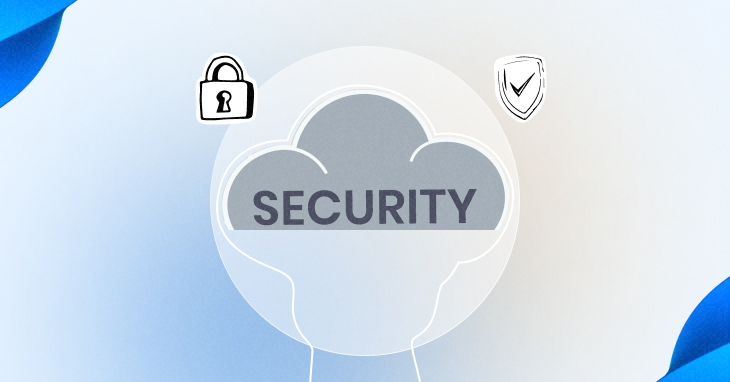Essential considerations for safeguarding customer data during CRM implementation, aligning with RBI standards.

In the digital age, the implementation of Customer Relationship Management, or CRM software in the banking sector is ubiquitous. However, as financial institutions strive to enhance customer experiences through CRM solutions, it is imperative to adhere to the stringent data security and privacy standards set by the Reserve Bank of India (RBI).
This article delves into the essential considerations for safeguarding customer data during CRM implementation, aligning with RBI standards.
Understanding the Importance of Data Security and Privacy
Significance of Data Security and Privacy in CRM Implementation
Data security is at the forefront of concerns in CRM implementation for banks. The information stored within CRM systems is highly sensitive, encompassing customer details, financial transactions, and communication logs. Failure to secure this data adequately can lead to severe consequences, including financial losses, reputational damage, and legal repercussions.
RBI’s Emphasis on Data Privacy
The RBI, recognizing the critical nature of customer data, has established guidelines that mandate the protection of customer information. These guidelines are designed to prevent unauthorized access, data breaches, and misuse of sensitive information. Compliance with these standards is not just a regulatory requirement; it is a fundamental aspect of maintaining customer trust and confidence.
Key Considerations in Data Security and Privacy Management
Robust Encryption Mechanisms
Implementing robust encryption mechanisms is a foundational step in securing CRM data. RBI guidelines stress the use of encryption protocols to protect data both in transit and at rest. This ensures that even if unauthorized access occurs, the intercepted data remains unreadable and unusable.
End-to-End Encryption
A more advanced approach involves the implementation of end-to-end encryption, ensuring that data remains encrypted throughout its entire journey within the CRM system. This comprehensive encryption strategy enhances the overall security posture, mitigating risks associated with potential vulnerabilities in the system.
Access Controls and Role-Based Permissions
RBI standards recommend the implementation of stringent access controls and role-based permissions within CRM systems. Limiting access to sensitive data based on job roles ensures that only authorized personnel can view or modify specific information, reducing the risk of internal threats and data leaks.
Regular Security Audits
Conducting regular security audits is a proactive measure outlined by the RBI to identify and rectify vulnerabilities. Implementing a robust auditing mechanism within CRM systems allows banks to monitor user activities, detect suspicious patterns, and address potential security breaches promptly.
Multi-Factor Authentication
To strengthen user authentication, RBI guidelines advocate for the incorporation of multi-factor authentication (MFA) in CRM systems. MFA adds an additional layer of security by requiring users to provide multiple forms of identification, significantly reducing the risk of unauthorized access.
Biometric Authentication
In line with technological advancements, the use of biometric authentication methods, such as fingerprint or facial recognition, is encouraged by the RBI. Integrating these technologies into CRM systems enhances user authentication and adds an extra layer of security against identity theft and unauthorized access.
Customer Data Handling and Consent Management
Transparent Data Handling Practices
Transparency in data handling practices is a fundamental aspect of data privacy. CRM systems must clearly communicate how customer data is collected, processed, and stored. This not only aligns with RBI guidelines but also builds trust with customers, who are increasingly concerned about the use of their personal information.
Explicit Consent Mechanisms
RBI emphasizes the need for explicit consent from customers regarding the use of their data. CRM systems should incorporate mechanisms to obtain clear and informed consent from customers, specifying the purposes for which their data will be utilized. Providing options for customers to manage and modify their consent preferences adds an extra layer of privacy control.
Data Minimization and Retention Policies
Adhering to the principle of data minimization, CRM systems should only collect and retain information that is necessary for the intended purposes. Implementing stringent retention policies ensures that obsolete data is regularly purged, reducing the risk associated with storing unnecessary customer information.
Continuous Compliance Monitoring
Ongoing Compliance Assessments
RBI guidelines stress the importance of ongoing compliance assessments to adapt to evolving threats and regulatory changes. Banks should establish protocols for continuous monitoring, periodic reviews, and assessments to ensure that CRM systems remain in compliance with data security and privacy standards.
Regular Training and Awareness Programs
Human error remains a significant factor in data security incidents. RBI recommends regular training and awareness programs to educate employees about the importance of data security and privacy. Well-informed staff are better equipped to adhere to protocols and recognize potential security risks.
Conclusion
In conclusion, the implementation of CRM systems like Toolyt in the banking sector is a strategic move to enhance customer relationships and streamline operations. However, it is crucial to prioritize data security and privacy in line with RBI standards.
By incorporating robust encryption mechanisms, access controls, multi-factor authentication, and transparent data handling practices, banks can not only meet regulatory requirements but also instil confidence in customers.
Continuous compliance monitoring, including regular security audits and ongoing training programs, is essential to ensure the resilience of CRM systems against emerging threats. Adhering to these considerations not only safeguards customer data but also positions banks as trustworthy custodians of sensitive information in the digital era.
